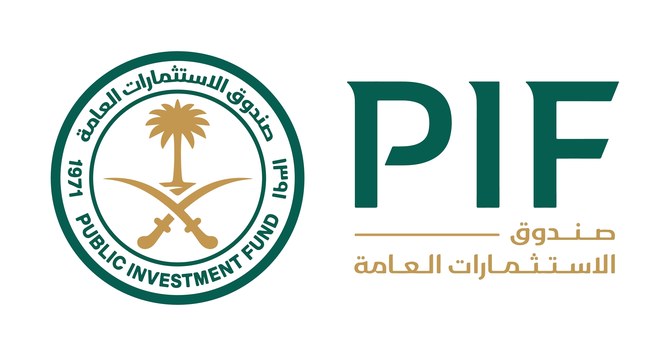
04 Jul 2024
RIYADH: Saudi Arabia’s Public Investment Fund retained its top Middle East position and rose five places to tie for second in a ranking of 100 sovereign wealth bodies, according to a release.
The 2024 Governance, Sustainability, and Resilience Scoreboard, published by data platform Global SWF, shows the Kingdom’s fund improved its assessment score to an impressive 96 percent from 92 percent the previous year.
Additionally, PIF attained the top global position for deploying fresh capital over the past five and a half years.
The GSR evaluation tool weighs crucial factors, including transparency and accountability, impact and responsible investing, as well as legitimacy and long-term sustainability.
The scoring system comprises 25 distinct elements: 10 concerning governance, 10 studying sustainability, and five examining resilience. Each element is answered with a binary response, given equal weight, and converted into percentage points.
“The presence of the Saudi Arabian SWF is a testament of the efforts that some of the Middle Eastern funds are undertaking to spearhead best practices in the region,” the agency commented.
Chad Richard, head of strategy development and innovation at PIF, stated: “The report reinforces PIF’s status as one of the world’s leading impactful and responsible investors, with world-class governance and sustainability practices.”
According to Richard, Saudi Arabia’s sovereign wealth fund has been at the forefront of promoting the global clean energy transition. It conducted the largest-ever voluntary carbon credit auctions worldwide, selling 3.6 million credits to international companies.
PIF also pioneered the issuance of green bonds, including the first-ever century green bond, totaling $8.5 billion. Additionally, it was the first fund in the region to pledge to achieve net zero emissions by 2050.
These efforts underscore PIF’s commitment to investing in a cleaner and more eco-conscious economy and fostering sustainable growth domestically and globally.
In 2024, state-owned investors face a challenging environment of volatility and uncertainty. The report mentioned that despite this, global equities experienced a strong rally in the first half of the year, with record highs reached by the S&P 500 and Nasdaq on June 18.
The S&P 1200 Global index also saw significant gains of 11.6 percent year-to-date. Bonds and hedge funds showed more modest increases of 0.5 percent and 5.5 percent, respectively.
Private markets, including private equity and infrastructure, saw moderate rises, while real estate declined by 5.5 percent compared to December 2023.
Geopolitically, conflicts in Ukraine and Palestine, as well as tensions between China and the US, persist. Oil prices remain high at $83 per barrel, benefiting sovereign wealth funds from oil-rich economies.
“Investments in the first half of 2024 are again led by the Oil Five - Saudi’s PIF, Abu Dhabi’s ADIA, Mubadala and ADQ, and Qatar’s QIA, which invested $38 billion in 56 different deals. This figure is more than double of what the Maple Eight – largest Canadian funds – deployed and almost eight times what the Singaporean funds spent,” the report stated.
Middle Eastern funds have shown remarkable improvement in global sustainability rankings, increasing from 32 percent in 2020 to 48 percent in 2024, despite stricter sustainability criteria introduced this year.
Among the 22 GCC funds, the report highlighted that the PIF continues to lead the charge and has come a long way, increasing its score from 28 percent in 2020 to 96 percent today.
It also mentioned that the Saudi fund voluntarily publishes an allocation and impact report and conducts self-assessments based on the Santiago Principles despite not being a member of the International Forum of Sovereign Wealth Funds.
Abu Dhabi’s Mubadala is on a similar path and plans to issue its inaugural annual impact report in the second half of 2024.
According to the Global SWF, state-owned investors, such as sovereign wealth funds and public pension funds, have achieved record-high assets under management. SWFs manage over $12 trillion, while PPFs oversee over $24 trillion, reflecting robust financial performance and growth beyond 2021 levels.
During the first half of 2024, sovereign investors participated in 27 mega-deals, each valued at over $1 billion in investments or divestments, the report added. Notably, the Saudi PIF ranked fifth, seventh, and eighth among the top 10 largest and most significant investments during this period.
According to the report, the push for sustainability goals at the organizational level is influencing the investment preferences of SOIs. In a significant shift, investments in green assets primarily focused on renewable energy have surpassed investments in black assets such as oil, gas, and mining for the first time in 2021. This trend has continued through 2022, 2023, and the first half of 2024.
According to the report’s charts, PIF holds the second-largest portfolio weight among SOIs invested in their domestic economy, standing at 73 percent, following Abu Dhabi’s ADQ, which leads at 89 percent.
The Saudi fund also stands out for its strong preference for direct investments in private equity and its substantial domestic focus.
Specifically, it targets critical sectors of the Saudi economy, including sports and leisure, tourism, and gaming, as well as construction and heavy industry.
It plays a crucial role as an economic catalyst and facilitator in achieving the Kingdom’s Vision 2030. It is dedicated to fostering private sector growth, expanding the country’s industrial base and creating employment opportunities as well as enhancing women’s participation in the workforce, attracting foreign direct investment, and developing the nation’s financial markets.
PIF also posted strong financial results for 2023, with revenues reaching SR331 billion ($88.3 billion) from its diverse investment portfolio. This marks a growth of over 100 percent compared to 2022, underscoring robust returns and progress toward its long-term goals in driving the Kingdom’s economic transformation.
The consolidated financial statements 2023, prepared by KPMG, confirmed compliance with International Financial Reporting Standards and London Stock Exchange listing requirements.
PIF’s 2023 financial results underscore its strong financial and investment standing, receiving an A1 rating from Moody’s with a positive outlook and an A+ rating from Fitch with a stable outlook. These ratings affirm the fund’s robust financial health and consistent performance in the global market.